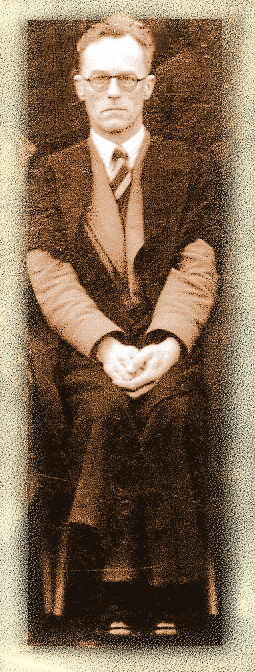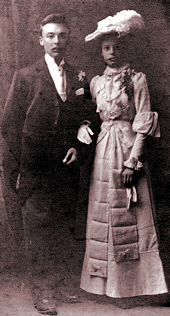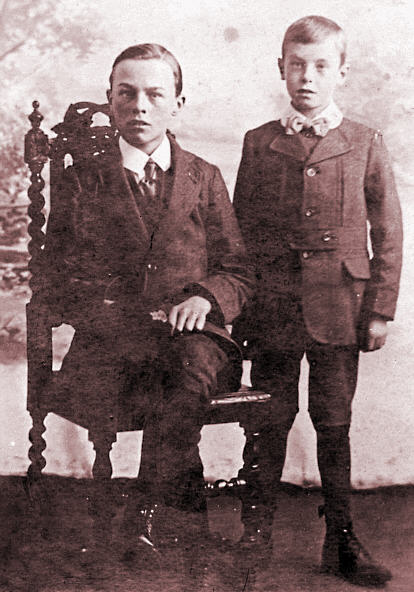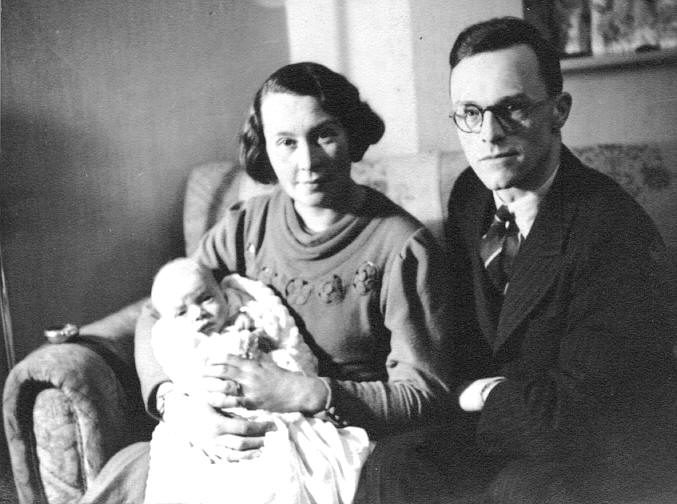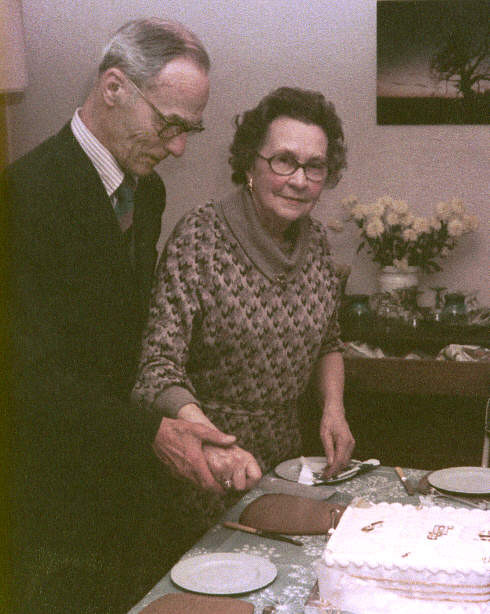|
|
William Vivian Todd, B.A.
(London), L.R.A.M., A.R.C.O.
(1904-1986), was the first Senior Master
of Carlton-le-Willows Grammar, and
head of Music. He retired in spring 1968, aged 64.
Music
was a special strength in the early Carlton le WIllows – all kinds of
music. Though ‘Toddy’ himself seemed
to have no taste for and no understanding of anything other than
‘Classical’, and argued forcefully
that other kinds of music were unworthy of attention, the School on his watch fostered bands
playing Rock, Dance, Jazz,
and even Skiffle. We had the
chance to develop the fundamental skills and use them in whichever style we
chose – provided we took those fundamentals seriously. That wasn’t always popular – in the 1950s
all a would-be pop star needed were a guitar and four chords, it seemed. But we got much more whether we liked it or not. And we drew huge benefit. So did the Nottinghamshire music community generally. He helped set up the County’s Saturday Music School initiative (which gave extra tuition to gifted pupils) and the astonishingly successful Nottinghamshire County Youth Orchestra. His arrangement for Choir and Orchestra of the hymn ‘For All the Saints’ was composed for an event at Southwell Minster which preceded the County Youth Orchestra, and is still available from Novello’s catalogue. |
|
|
||||||||||||||||||||||||||||||||||||||||||||||||||||||
|
|
|
|
|
||||||||||||||||||||||||||||||||||||||||||||||||||||||
|
|
Marcia Malia, his daughter, attended the school too and was one of the leading pupil musicians
of her generation – as a singer, and violist both in school and in the
community, including the Notts.
County Youth Orchestra which her father helped establish. She writes here about his life from both
the perspective of a daughter and of a pupil. |
|
|
||||||||||||||||||||||||||||||||||||||||||||||||||||||
|
|
|
|
|
||||||||||||||||||||||||||||||||||||||||||||||||||||||
|
He would have been 100 on 4 April 2004. Who and what was my
father? Does anyone know? I certainly don't, and when I was asked to
write about him I phoned my brother to ask him. He does not know either. |
|
|
|
||||||||||||||||||||||||||||||||||||||||||||||||||||||
|
|
|
|
|
||||||||||||||||||||||||||||||||||||||||||||||||||||||
|
|
Driven, neurotic,
conscientious, emotional (though he tried to hide it); Loyal, puritanical, volatile,
unreasonable; Fastidious, untidy, fussy, old
fashioned; Intensely honourable,
practical, intolerant, and forgiving: He and my mother could have a
huge row, and ten minutes later Dad would come back in the kitchen, having
forgotten all about it. He’d ask
about lunch or something, while Mum was still fuming. |
|
|
||||||||||||||||||||||||||||||||||||||||||||||||||||||
|
|
|
|
|
||||||||||||||||||||||||||||||||||||||||||||||||||||||
|
He was shaped, like the rest of us, by his
background. He was born in a village
called Kings Cliffe, on the road from Corby to Stamford. My grandfather came from there, and my
brother says Dad told him that when mains water first came to the village his
grandmother refused to have anything to do with it because she thought there
were "hedgehogs in it". |
|
|
||||||||||||||||||||||||||||||||||||||||||||||||||||||
|
The family quickly arrived in
Nottingham, my grandmother's home town.
Living in Netherfield and working in the railway yards, my grandfather took all the local prizes
as a tenor. They eventually moved somewhat
up-market, settling at 9 Redland Avenue and my grandfather formed a small
building business. Grannie Todd had a
hysterectomy, for cancer, round about 1915/1920 and survived, against all
expectation. This turned her into
something of a religious fanatic, though she calmed down a bit towards the
end of her life. |
|
|
|
||||||||||||||||||||||||||||||||||||||||||||||||||||||
|
|
|
|
|
||||||||||||||||||||||||||||||||||||||||||||||||||||||
|
|
In the mid-thirties, Grandad,
driven to distraction by my Grandmother's behaviour, ran off with a lady who
I later knew as "Aunty Flo".
Dad wrote extremely scandalised
and pompous letters to his father about this at the time, though they were
eventually reconciled. Grandad and Aunty Flo ran a
pub, first in Marlow and later in
Bleasby (the Wagon & Horses).
They kept chickens in what is now, I believe, the car park. Dad's brother Neville took over the
building business, which he ran from a house and attached yard in Burton
Road. He built the pair of semis in
Westdale Lane where we lived for many years - I remember the manhole covers
in our driveway, embossed "G W Todd & Sons". He emigrated to Australia with his family
in the early fifties. |
|
|
||||||||||||||||||||||||||||||||||||||||||||||||||||||
|
|
|
|
|
||||||||||||||||||||||||||||||||||||||||||||||||||||||
|
There were various relatives around Carlton, most of whom I hardly met. I remember some people called Doris & Bernard who lived up at the top end of Wood Lane for some years before moving to Wollaton Vale. I think the surname was Glover (my grandmother's maiden name). I can only remember meeting them twice. There were some other people around Carlton whose names I can't remember; presumably some are there still, but I don't know any names. Maybe you do? (Maybe you are one?) Dad very rarely spoke of his
background. We felt he was ashamed of his humble beginnings, which is sad, really. |
|
|
|
||||||||||||||||||||||||||||||||||||||||||||||||||||||
|
|
|
|
|
||||||||||||||||||||||||||||||||||||||||||||||||||||||
|
|
Wishing to 'better' himself,
Dad won a scholarship to Mundella. We
have old school exercise books containing essays on subjects as diverse as a
post-WW1 fictional (and sanctimonious) letter to a
former German penfriend; the future of powered flight; the cinema (to be used
for educational purposes only, you understand: no frivolity or immorality of
any kind. Beware the cinema danger!);
and a letter to the local coal merchant ordering "best Gedling
coal" (sadly now a thing of the
past: the Gedling mine is now
closed). |
|
|
||||||||||||||||||||||||||||||||||||||||||||||||||||||
|
|
|
|
|
||||||||||||||||||||||||||||||||||||||||||||||||||||||
|
Like my brother I’ve heard the
odd yarn from Dad - such as when,
back visiting in Kings Cliffe, Dad
held the ladder so his father could paint a local Tory candidate's entire
house overnight in liberal colours –
orange, I think (or was it green ...?) – during an election. |
|
|
|
||||||||||||||||||||||||||||||||||||||||||||||||||||||
|
|
|
|
|
||||||||||||||||||||||||||||||||||||||||||||||||||||||
|
|
After leaving school Dad
attended University College in Nottingham, which was at that time an
off-shoot of London University, obtaining a BA (Hons) degree in French. I don't actually know anything at all
about how he got his musical training,
although he held diplomas (LRAM & ARCO) in Voice Culture and Class
Singing and Organ respectively, and
he later became a Life Member of the Royal College of Organists. Did you know that Dad's professor at
University was the man whose wife, in 1912, ran off with and later married D.
H. Lawrence? He was Professor Ernest
Weekley, and she Frieda von Richthofen:
a great scandal at the time. |
|
|
||||||||||||||||||||||||||||||||||||||||||||||||||||||
|
|
|
|
|
||||||||||||||||||||||||||||||||||||||||||||||||||||||
|
So, round about 1925/6, armed
with his degree and a teaching qualification, Dad set off to his first
teaching post in Doncaster, moving on
from there to Market Drayton where he was to meet my mother ........... |
|
|
|
||||||||||||||||||||||||||||||||||||||||||||||||||||||
|
|
|
|
|
||||||||||||||||||||||||||||||||||||||||||||||||||||||
|
|
When Nottingham Forest was in
the European Cup, football songs were
all the rage, so my father wrote
one. It was a real Moody &
Sankey/Stainer's Crucifixion/Souza march sort of piece, if you know what I
mean, with marching band
accompaniment, along the lines of
"come on lads, play up and play the game". He sent this off (with full score) to Brian Clough, who must have roared with laughter when he read the words and
who sent him a pair of tickets to watch West Ham being hammered 6-0 (eat your hearts out today, guys!). It was the first and last football match
that my mother ever went to. Needless
to say, Forest did not record the song.
I think Dad was rather disappointed. |
|
|
||||||||||||||||||||||||||||||||||||||||||||||||||||||
|
|
|
|
|
||||||||||||||||||||||||||||||||||||||||||||||||||||||
|
We can see from the above story
that his Edwardian attitudes hadn't changed that much in the sixty-odd years
since writing to his fictitious former German pen friend in 1918. |
|
|
|
||||||||||||||||||||||||||||||||||||||||||||||||||||||
|
|
|
|
|
||||||||||||||||||||||||||||||||||||||||||||||||||||||
|
|
Not that he hadn't had fun when young – he was a good
hockey player for a long time, and later a Saturday afternoon umpire for many
years (I remember him, when I was a small child, dressed up in Plus 4's,
ready to go out umpiring). My mother
played hockey too, and was herself a keen musician. She was teaching infants in the school at Market Drayton when
they met. Her introduction to Dad was when he invited her into his music room
to listen to Wagner on a 78 record; she told me of fun and hilarity at local
dances doing "the Lancers" and such like before they were
married. If this was anything like
the square dancing we used to do in 5A with Dai Roberts every week I can well
believe that it was a riot. |
|
|
||||||||||||||||||||||||||||||||||||||||||||||||||||||
|
|
|
|
|
||||||||||||||||||||||||||||||||||||||||||||||||||||||
|
They were married in
Littleover, near my mother's family's home in Derby on 3 January 1933. An address in North London was given for
Dad on the marriage certificate. He
had obtained a post at Willesden County school teaching French and
Music. Although it was a mixed school
Mum couldn't work there as wives were not permitted to work in the same school
as their husbands, and in any case,
wives stayed at home in 1933.
So Mum took up the viola and soon began teaching beginners herself,
once she had got far enough ahead of them to manage it. My brother arrived in 1937. |
|
|
|
||||||||||||||||||||||||||||||||||||||||||||||||||||||
|
|
|
|
|
||||||||||||||||||||||||||||||||||||||||||||||||||||||
|
|
|
|
||||||||||||||||||||||||||||||||||||||||||||||||||||||
|
|
|
|
|
||||||||||||||||||||||||||||||||||||||||||||||||||||||
|
When war broke out the Willesden school was evacuated to
Northampton, along with the Kilburn & Brondesbury Girls' school. They shared a local school building; the
local kids were taught for half the day and the evacuees for the other
half. Kids were billeted all over the
place, some with the teachers: we had two girls with us. The teachers were far more involved with
the lives of the kids than in our day.
They ran activities for them and they had to be Mum, Dad, counsellor
and everything else for them. |
|
|
|
||||||||||||||||||||||||||||||||||||||||||||||||||||||
|
|
|
|
|
||||||||||||||||||||||||||||||||||||||||||||||||||||||
|
|
Among Dad's things I found a several little teaching
handbooks issued by the Central Council for Health Education, on the workings
of the human body, on sex education, and even on venereal disease. |
|
|
||||||||||||||||||||||||||||||||||||||||||||||||||||||
|
|
|
|
|
||||||||||||||||||||||||||||||||||||||||||||||||||||||
|
When he wasn't teaching,
growing vegetables to feed the family, conducting sex education and all the
other myriad tasks necessary, Dad was
a Fire warden (if you want any aircraft recognition books from WWII I'm yer man!) Mind you, they were lucky in Northampton
really: a couple of stray bombs from
Coventry and two doodlebugs were all they had to cope with, I think. |
|
|
|
||||||||||||||||||||||||||||||||||||||||||||||||||||||
|
|
|
|
|
||||||||||||||||||||||||||||||||||||||||||||||||||||||
|
|
After the war we came to
Nottingham and he taught at the Boys' High School. I don't think he particularly liked teaching boys only, or
school on Saturday mornings, though he did enjoy the musical traditions, with the annual "Founders Day"
service at St Mary's Church. There
was an organ in the school hall for him to play – a thing he was to hanker
after later when he got to CleW. As
well as his hockey umpiring he played the organ on Sundays at the Wesley
Chapel in Broad Street, and
occasionally at the Albert Hall; he
kept an allotment and he developed the large garden at Westdale Lane, with
lots of soft fruit for my mum to make up wonderful jams and bottles every
year (they never really got over the war – she was still bottling fruit in
the seventies). |
|
|
||||||||||||||||||||||||||||||||||||||||||||||||||||||
|
|
|
|
|
||||||||||||||||||||||||||||||||||||||||||||||||||||||
|
Most of Dad's various
activities were reached by bicycle.
In all weathers, he wore a
huge belted mackintosh and leather helmet or sou'wester, with an attaché case strapped over the
parcel shelf. Later on he had a bike
with a motor on the back wheel to help with the hills (a
"Cyclemaster"). There
wasn't a huge amount of money about in those days. My maternal uncle had helped them with the deposit on the house
in Westdale Lane – bought for the
princely sum of £900 in 1947. We didn't get a car until
around 1958. |
|
|
|
||||||||||||||||||||||||||||||||||||||||||||||||||||||
|
|
|
|
|
||||||||||||||||||||||||||||||||||||||||||||||||||||||
|
By 1953 he had had enough of boys only, I think. So when a new Grammar School was mooted in Carlton, only a couple of miles from home, he jumped at the opportunity offered, and the rest is history, as they say. So what does it all add up to,
then? |
|
|
|
||||||||||||||||||||||||||||||||||||||||||||||||||||||
|
|
|
|
|
||||||||||||||||||||||||||||||||||||||||||||||||||||||
|
|
|
|||||||||||||||||||||||||||||||||||||||||||||||||||||||
|
|
|
|
|
||||||||||||||||||||||||||||||||||||||||||||||||||||||
|
Why did he arrive ten minutes
late for nearly every lesson and then spend most of the rest of it explaining
why? (Particularly resourceful pupils were able, you may remember, by
judicious use of questions, to get him to use up the entire lesson in this
way.) |
|
|
|
||||||||||||||||||||||||||||||||||||||||||||||||||||||
|
|
|
|
|
||||||||||||||||||||||||||||||||||||||||||||||||||||||
|
|
Why did he take so long to mark
exams? I know the answer to that one
– he went over every paper with a fine toothcomb trying to find more marks
for people. |
|
|
||||||||||||||||||||||||||||||||||||||||||||||||||||||
|
|
|
|
|
||||||||||||||||||||||||||||||||||||||||||||||||||||||
|
Why did he always let me borrow
the car, from the moment I passed my driving test, no questions asked, to
take heaps of friends to parties all over the place, and he never noticed
when I got back a little the worse for wear. |
|
|
|
||||||||||||||||||||||||||||||||||||||||||||||||||||||
|
|
|
|
|
||||||||||||||||||||||||||||||||||||||||||||||||||||||
|
|
Once, when I was nineteen and
home from college in London, I persuaded some youth to drive me home from the
infamous 'Carousel Club' in his mini.
Standing on the front doorstep when we arrived around 1 a.m. was Dad
(talk about burning rubber – said youth disappeared at an unbelievable rate
of knots). I was then subjected to a
large dose of "not while you're under my roof" and other such
rants, irrespective of the fact that I was at that time sharing a flat in
Shepherds Bush, and getting up to heaven knows what at all hours of the day
and night, as students do. I have
never really understood why he did that. |
|
|
||||||||||||||||||||||||||||||||||||||||||||||||||||||
|
|
|
|
|
||||||||||||||||||||||||||||||||||||||||||||||||||||||
|
Why did girls take him their troubles? |
|
|
|
||||||||||||||||||||||||||||||||||||||||||||||||||||||
|
|
|
|
|
||||||||||||||||||||||||||||||||||||||||||||||||||||||
|
Finally, I give you a gem to
contemplate: Driving to
school through Gedling one morning, c1961: Marcia: " Is that
Chris (Walls) walking along over there, Dad?
I can't tell from behind." Dad: "Yes,
I'm sure it is – I recognise her hips". It's all part of life's rich
pattern, as they say. |
|
|
|
||||||||||||||||||||||||||||||||||||||||||||||||||||||
|
|
|
|
|
||||||||||||||||||||||||||||||||||||||||||||||||||||||
|
Marcia
Malia (née Todd) January
2004 |
|
|
|
||||||||||||||||||||||||||||||||||||||||||||||||||||||
|
|
|
|
|
||||||||||||||||||||||||||||||||||||||||||||||||||||||
